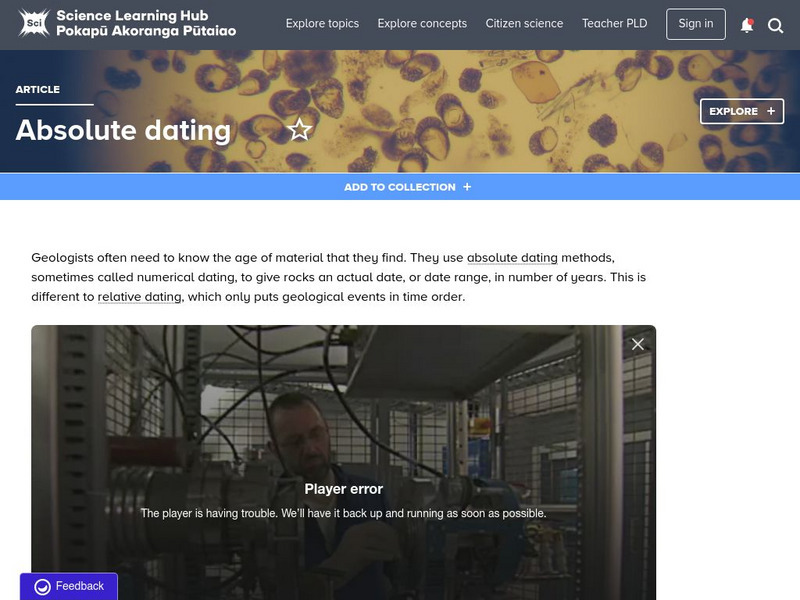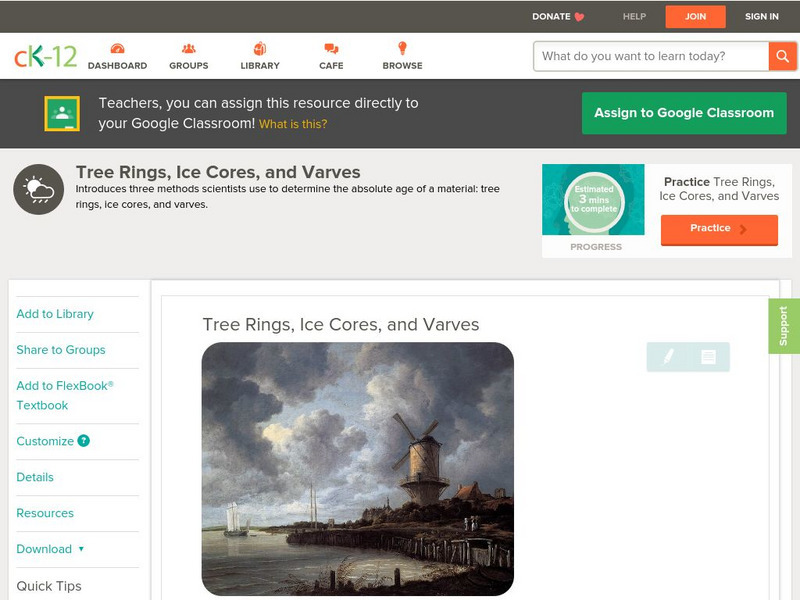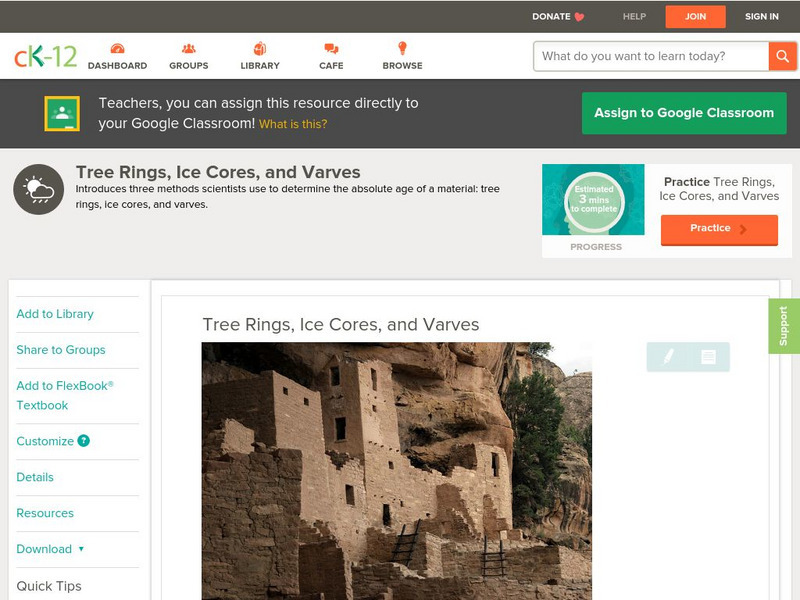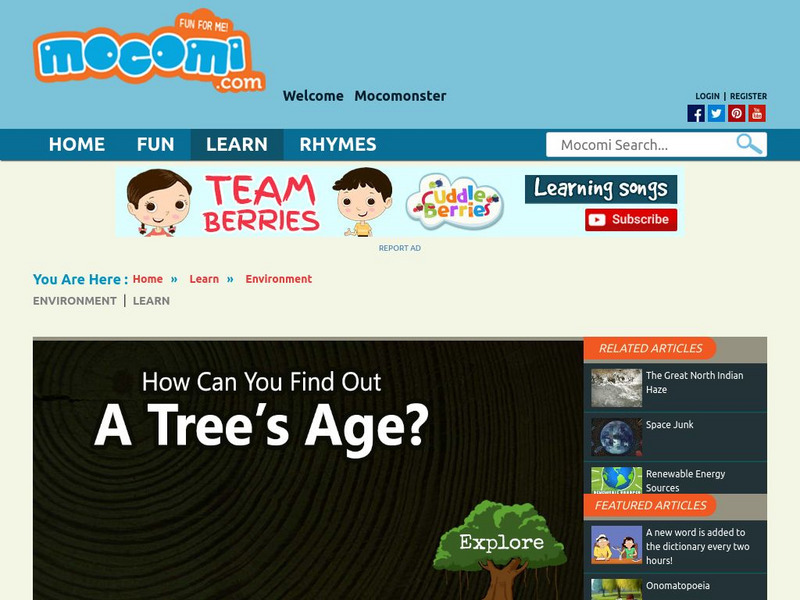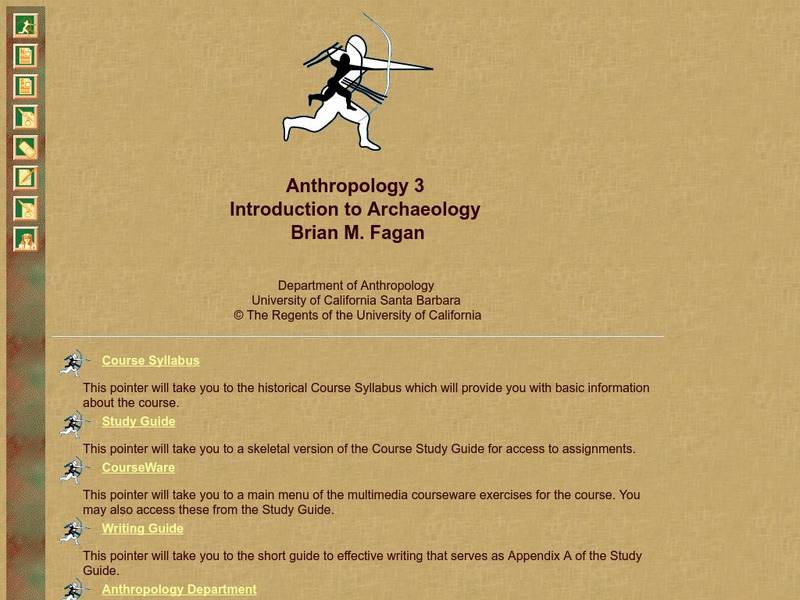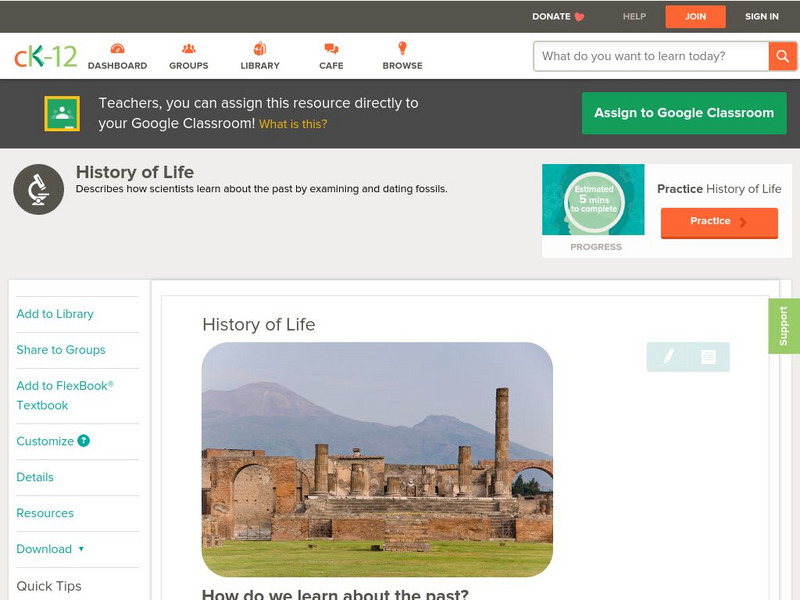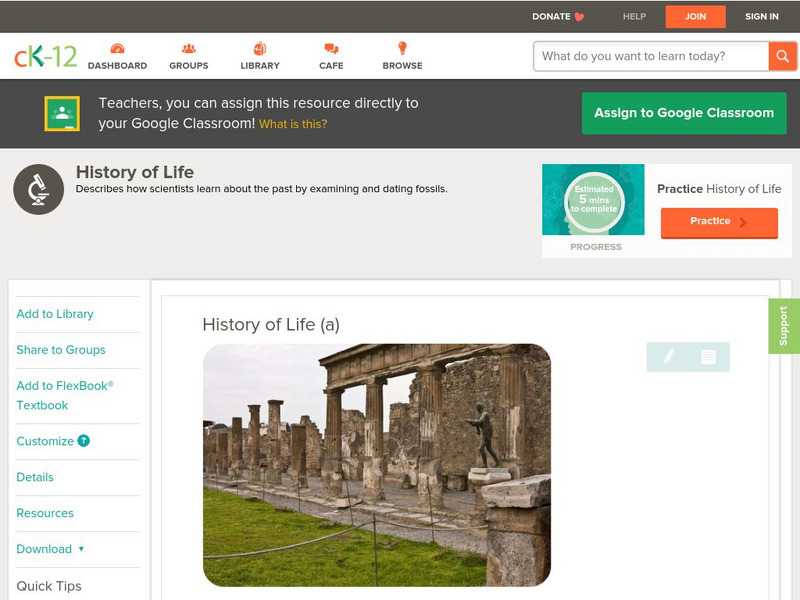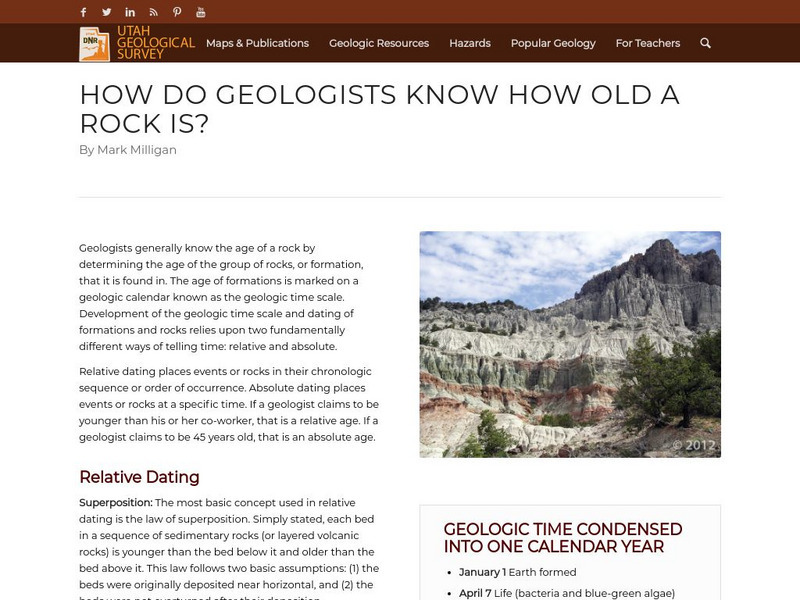Curated OER
Absolute Ages of Rocks
In this age of rocks worksheet, learners answer five matching questions about terms related to the decay of atoms. They use a strip of paper to simulate half life of atoms and determine the total amount of time it took to deplete the paper.
Curated OER
Absolute Ages of Rocks
In this rocks worksheet, students review the process of absolute dating of rocks and compare it to the relative dating process. This worksheet has 16 fill in the blank questions.
McGraw Hill
Mc Grawl Hill: Dino Dig
A virtual lab allows you to do radiometric dating on dinosaur bones. You'll be using a mass spectrometer and utilizing several steps of the scientific method.
Smithsonian Institution
National Museum of Natural History: Paleobiology: Absolute Dating
An explanation of radiometric or absolute dating of geological formations based on using the half-life of radioactive elements to figure out how old given rock layers are. A link on the left provides information about relative dating as...
Other
University of Waikato: Science Learning Hub: Absolute Dating
Explains what absolute dating is as compared to relative dating and how they can work together. The characteristics of several different radiometric methods are compared. Includes three short videos and an interactive where students...
Other
Planetary Society: Relative and Absolute Ages in Histories of Earth and the Moon
A lengthy scholarly article that discusses the geologic time scale, its history of development, age-dating events that occurred in different eras, and how absolute and relative dating are used to assess the ages of the Earth and Moon....
Other
Milton J. Rubenstein Museum: Determining the Age of Rocks and Fossils [Pdf]
This set of activities from the Milton J. Rubenstein Museum of Science & Technology has students investigating how relative dating and absolute dating methods are used to determine the age of rocks and fossils.
US Geological Survey
The Numeric Time Scale
This is a good source for getting an in-depth description of using radioactive decay to measure the ages of rocks. In addition to describing the process of radiometric dating, this resource also includes a geologic time scale and four...
Georgia Department of Education
Ga Virtual Learning: Historical Geology
In this interactive tutorial you will explore how geologists use clues in rocks to determine the order in which rocks formed. Learn how principles of radioactivity are used to assign actual ages to rocks. Students will explore fossils...
CK-12 Foundation
Ck 12: Earth Science: Tree Rings, Ice Cores, and Varves
[Free Registration/Login may be required to access all resource tools.] How scientists can determine age and other features of a rock or material it contains.
CK-12 Foundation
Ck 12: Earth Science: Tree Rings, Ice Cores, and Varves
[Free Registration/Login may be required to access all resource tools.] How scientists can determine age and other features of a rock or other material.
Mocomi & Anibrain Digital Technologies
Mocomi: How to Determine the Age of a Tree
Have you ever looked at a tree and wondered just how long it had been standing there? The branches and the trunks of trees have unique rings inside them, which can be seen if you cut a transverse section of a tree. These rings appear as...
University of California
Ucsb: Archserve: Exercise 1 2: Chronological Methods
A resource highlighting the process of dating methods in archaeology. Look at Relative Dating and Absolute Dating systems.
CK-12 Foundation
Ck 12: Biology: History of Life
[Free Registration/Login may be required to access all resource tools.] This comprehensive lesson by CK-12 explains how scientists learn about the past by examining and dating fossils.
CK-12 Foundation
Ck 12: Biology: History of Life
[Free Registration/Login may be required to access all resource tools.] Describes how scientists learn about the past by examining and dating fossils.
PBS
Pbs Teachers: Methuselah Tree
Examine how scientists determine the age of living and non-living trees and identify factors that impact sizes of tree rings. Analyze tree ring samples and determine the age of the oldest sample.
Woods Hole Oceanographic Institution
Woods Hole Oceanography Institute: Introduction to the Galapagos Islands
Find out how scientists at Woods Hole Oceanography Institute use radiometric dating to figure out the age of volcanoes. A slideshow of the history of radiometric dating can also be viewed.
Other
Utah Geological Survey: How Do Geologists Know How Old a Rock Is?
Geologists generally know the age of a rock by determining the age of the group of rocks, or formation, that it is found in. The age of formations is marked on a geologic calendar known as the geologic time scale. Development of the...
Science Struck
Science Struck: Relative vs. Absolute Dating
Explains what relative and absolute dating are and some different methods used for each. A Venn diagram is presented showing what characteristics they share and how they differ.






